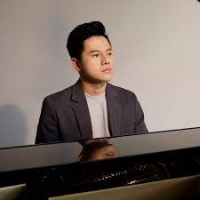Bass Sheet Music
 "Music is the poetry of the air. " Richter
"Music is the poetry of the air. " Richter
Sergei Rachmaninoff
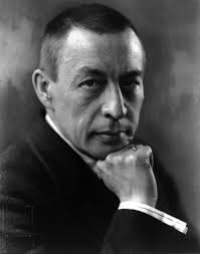
Sergei Vasilyevich Rachmaninoff (English: /rɑːxˈmɑːnəˌnɔːf, -ˌnɒf, rɑːk-/ rahkh-MAH-nə-nawf, -nof, rahk-; Russian: Серге́й Васи́льевич Рахма́нинов, tr. Sergei Vasilyevich Rakhmaninov, IPA: ; 1 April 1873 – 28 March 1943) was a Russian composer, virtuoso pianist, and conductor of the late Romantic period. The influence of Tchaikovsky, Rimsky-Korsakov, Balakirev, Mussorgsky, and other Russian composers is seen in his early works, later giving way to a personal style notable for song-like melodicism, expressiveness and rich orchestral colours.
Robert Kinkel
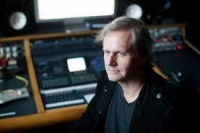
Robert Kinkel is an American professional session keyboardist and music engineer most known for his role as a co-creator/co-producer/co-composer and touring ...
Bach

Johann Sebastian Bach (31 March 1685 – 28 July 1750) was a German composer and organist whose sacred and secular works for choir, orchestra, and solo instruments drew together the strands of the Baroque period and brought it to its ultimate maturity. Although he introduced no new forms, he enriched the prevailing German style with a robust contrapuntal technique, an unrivalled control of harmonic and motivic organisation in composition for diverse musical forces, and the adaptation of rhythms and textures from abroad, particularly Italy and France.
Revered for their intellectual depth and technical and artistic beauty, Bach's works include the Brandenburg concertos; the Goldberg Variations; the English Suites, French Suites, Partitas, and Well-Tempered Clavier; the Mass in B Minor; the St. Matthew Passion; the St. John Passion; The Musical Offering; The Art of Fugue; the Sonatas and Partitas for violin solo; the Cello Suites; more than 200 surviving cantatas; and a similar number of organ works, including the celebrated Toccata and Fugue in D Minor.
While Bach's fame as an organist was great during his lifetime, he was not particularly well-known as a composer. His adherence to Baroque forms and contrapuntal style was considered "old-fashioned" by his contemporaries, especially late in his career when the musical fashion tended towards Rococo and later Classical styles. A revival of interest and performances of his music began early in the 19th century, and he is now widely considered to be one of the greatest composers in the Western tradition.
Revered for their intellectual depth and technical and artistic beauty, Bach's works include the Brandenburg concertos; the Goldberg Variations; the English Suites, French Suites, Partitas, and Well-Tempered Clavier; the Mass in B Minor; the St. Matthew Passion; the St. John Passion; The Musical Offering; The Art of Fugue; the Sonatas and Partitas for violin solo; the Cello Suites; more than 200 surviving cantatas; and a similar number of organ works, including the celebrated Toccata and Fugue in D Minor.
While Bach's fame as an organist was great during his lifetime, he was not particularly well-known as a composer. His adherence to Baroque forms and contrapuntal style was considered "old-fashioned" by his contemporaries, especially late in his career when the musical fashion tended towards Rococo and later Classical styles. A revival of interest and performances of his music began early in the 19th century, and he is now widely considered to be one of the greatest composers in the Western tradition.
Traditional

Yoo Jae-suk
Yoo Jae-suk (Hangul: 유재석; August 14, 1972) is a South Korean comedian, host, and singer. He has hosted many more shows in Korea, such as Infinite Challenge, Running Man, Happy Together, and Hangout With Yoo. He is known as one of South Korea's best comedians. He is a member of the K-pop group SSAK3.
R. Rodgers
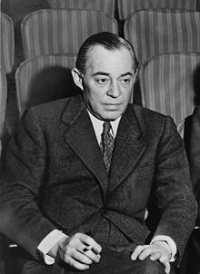
Richard Charles Rodgers (June 28, 1902 – December 30, 1979) was an American composer of music for more than 900 songs and for 43 Broadway musicals. He also composed music for films and television. He is best known for his songwriting partnerships with the lyricists Lorenz Hart and Oscar Hammerstein II. His compositions have had a significant impact on popular music down to the present day, and have an enduring broad appeal.
Rodgers was the first person to win what are considered the top show business awards in television, recording, movies and Broadway—an Emmy, a Grammy, an Oscar, and a Tony—now known collectively as an EGOT. He has also won a Pulitzer Prize, making him one of two people (Marvin Hamlisch is the other) to receive each award.
Rodgers was the first person to win what are considered the top show business awards in television, recording, movies and Broadway—an Emmy, a Grammy, an Oscar, and a Tony—now known collectively as an EGOT. He has also won a Pulitzer Prize, making him one of two people (Marvin Hamlisch is the other) to receive each award.
Teresa Carreño
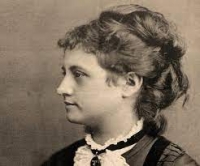
María Teresa Gertrudis de Jesús Carreño García was a Venezuelan pianist, soprano, composer, and conductor. Over the course of her 54-year concert career, she became an internationally renowned virtuoso pianist and was often referred to as the "Valkyrie of the Piano".
north royalton community band

The North Royalton Community Band was founded in 1998 and has grown to become a
well-rounded concert organization within a very short time. NRCB performs four to five scheduled concerts each year along with other special event concerts, playing a wide variety of music from marches to overtures, Broadway to Hollywood, classics to contemporary. All of our concerts are free and open to the public.
well-rounded concert organization within a very short time. NRCB performs four to five scheduled concerts each year along with other special event concerts, playing a wide variety of music from marches to overtures, Broadway to Hollywood, classics to contemporary. All of our concerts are free and open to the public.
Albert Hammond
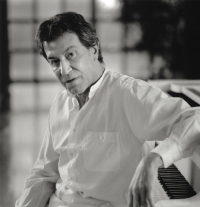
Albert Hammond (born 18 May 1944, London, England) is a Gibraltarian-British singer, songwriter and music producer. Hammond is one of the more successful pop/rock songwriters to come out of England during the 1960s and 1970s, and has also enjoyed a long career as a recording artist, his work popular in two languages on three continents across four decades.
"It Never Rains in Southern California" reached number five in the American Billboard Hot 100 chart and became a million-seller around the world, the first in a string of eight charting singles that Hammond enjoyed over the next five years. The accompanying album also introduced "Down by the River" and "If You Gotta Break Another Heart" — which was recorded by Cass Elliot in a slightly rewritten version — and "The Air That I Breathe." The latter was Hammond's favorite song on the album, and it was later to become the last major international hit by The Hollies (and that group's last significant U.S. single for more than a decade). Meanwhile, Hammond's follow-up album, The Free Electric Band (its title track salvaged from the unproduced musical), was nearly as impressive musically as its predecessor, although it sold far fewer copies without a huge hit to drive its sales. His next hit, "I'm a Train," came amid a flurry of activity surrounding Hammond's career. He produced records by Johnny Cash ("Praise the Lord and Pass the Soup"), collaborated with Richard Carpenter and John Bettis ("I Need to Be in Love"), wrote songs with Art Garfunkel, and, growing out of the latter project, recorded a self-titled third album produced by Garfunkel producer Roy Halee.
"It Never Rains in Southern California" reached number five in the American Billboard Hot 100 chart and became a million-seller around the world, the first in a string of eight charting singles that Hammond enjoyed over the next five years. The accompanying album also introduced "Down by the River" and "If You Gotta Break Another Heart" — which was recorded by Cass Elliot in a slightly rewritten version — and "The Air That I Breathe." The latter was Hammond's favorite song on the album, and it was later to become the last major international hit by The Hollies (and that group's last significant U.S. single for more than a decade). Meanwhile, Hammond's follow-up album, The Free Electric Band (its title track salvaged from the unproduced musical), was nearly as impressive musically as its predecessor, although it sold far fewer copies without a huge hit to drive its sales. His next hit, "I'm a Train," came amid a flurry of activity surrounding Hammond's career. He produced records by Johnny Cash ("Praise the Lord and Pass the Soup"), collaborated with Richard Carpenter and John Bettis ("I Need to Be in Love"), wrote songs with Art Garfunkel, and, growing out of the latter project, recorded a self-titled third album produced by Garfunkel producer Roy Halee.
SpongeBob SquarePants

SpongeBob SquarePants is an American animated comedy television series created by marine science educator and animator Stephen Hillenburg for Nickelodeon. The series chronicles the adventures and endeavors of the title character and his aquatic friends in the fictional underwater city of Bikini Bottom. The fifth-longest-running American animated series, its popularity has made it a media franchise. It is the highest rated series to air on Nickelodeon and ViacomCBS Domestic Media Networks' most distributed property. As of late 2017, the media franchise has generated $13 billion in merchandising revenue for Nickelodeon.
Duke Ellington

Edward Kennedy "Duke" Ellington (April 29, 1899 â May 24, 1974) was an American composer, pianist, and bandleader.
Recognized during his life as one of the most influential figures in jazz, if not in all American music, Ellington's reputation has increased since his death, including a special award citation from the Pulitzer Prize Board.
Ellington called his style and sound "American Music" rather than jazz, and liked to describe those who impressed him as "beyond category", including many of the musicians who served with his orchestra, some of whom were themselves considered among the giants of jazz and remained with Ellington's orchestra for decades. While many were noteworthy in their own right, it was Ellington that melded them into one of the most well-known orchestral units in the history of jazz. He often composed specifically for the style and skills of these individuals, such as "Jeep's Blues" for Johnny Hodges, "Concerto for Cootie" ("Do Nothing Till You Hear from Me") for Cootie Williams and "The Mooche" for Tricky Sam Nanton. He also recorded songs written by his bandsmen, such as Juan Tizol's "Caravan" and "Perdido" which brought the "Spanish Tinge" to big-band jazz. After 1941, he frequently collaborated with composer-arranger Billy Strayhorn, who he called his alter-ego.
One of the twentieth century's best-known African-American celebrities, Ellington recorded for many American record companies, and appeared in several films. Ellington and his orchestra toured the United States and Europe regularly before and after World War II. Ellington led his band from 1923 until his death in 1974. His son Mercer Ellington took over the band until his death from cancer in 1996. Paul Ellington, Mercer's youngest son, took over the Orchestra from there and after his mother's passing took over the Estate of Duke and Mercer Ellington.
Recognized during his life as one of the most influential figures in jazz, if not in all American music, Ellington's reputation has increased since his death, including a special award citation from the Pulitzer Prize Board.
Ellington called his style and sound "American Music" rather than jazz, and liked to describe those who impressed him as "beyond category", including many of the musicians who served with his orchestra, some of whom were themselves considered among the giants of jazz and remained with Ellington's orchestra for decades. While many were noteworthy in their own right, it was Ellington that melded them into one of the most well-known orchestral units in the history of jazz. He often composed specifically for the style and skills of these individuals, such as "Jeep's Blues" for Johnny Hodges, "Concerto for Cootie" ("Do Nothing Till You Hear from Me") for Cootie Williams and "The Mooche" for Tricky Sam Nanton. He also recorded songs written by his bandsmen, such as Juan Tizol's "Caravan" and "Perdido" which brought the "Spanish Tinge" to big-band jazz. After 1941, he frequently collaborated with composer-arranger Billy Strayhorn, who he called his alter-ego.
One of the twentieth century's best-known African-American celebrities, Ellington recorded for many American record companies, and appeared in several films. Ellington and his orchestra toured the United States and Europe regularly before and after World War II. Ellington led his band from 1923 until his death in 1974. His son Mercer Ellington took over the band until his death from cancer in 1996. Paul Ellington, Mercer's youngest son, took over the Orchestra from there and after his mother's passing took over the Estate of Duke and Mercer Ellington.
Antonio Carlos Jobim

Antonio Carlos Brasileiro de Almeida Jobim (January 25, 1927 in Rio de Janeiro – December 8, 1994 in New York City), also known as Tom Jobim, was a Grammy Award-winning Brazilian songwriter, composer, arranger, singer, and pianist/guitarist. A primary force behind the creation of the bossa nova style, Jobim is acknowledged as one of the most influential popular composers of the 20th century. His songs have been performed by many singers and instrumentalists within Brazil and internationally.
Andrea Vezzoli

Andrea Vezzoli discovered his interest in music at the age of 12, when he began studying piano with Mara Buzzoni. After studying for more than two years, he joined the band at Corte Franca (BS) studying clarinet. He is still the first clarinet under the direction of Hercules and Giampietro Lanfranchini Fanchini. He composed early works ranging from folk to jazz (inspired by the landscapes of Franciacorta), and elicited some interest by major composers. In 2005, the composer met pianist Andrea Rosa, with whom he began studying composition at the Academy of Pasini Corte Franca (BS).
George Duke
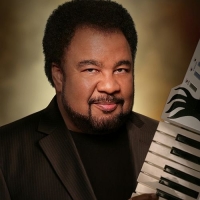
George M. Duke was an American keyboardist, composer, singer-songwriter and record producer. He worked with numerous artists as arranger, music director, writer and co-writer, record producer and as a professor of music.
Matt Garrisson
Matthew Justin Garrison is an American jazz bassist. Since 2011, he has run ShapeShifter Lab in Brooklyn, New York, with Fortuna Sung. Described by the New York Times as "an electric bass virtuoso", he has toured with Herbie Hancock.
Valerie Simpson
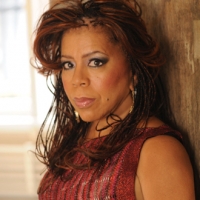
Valerie Simpson Songwriter Born: August 26, 1946 (age 75 years), Bronx, New York, United States Spouse: Nickolas Ashford (m. 1974–2011) Children: Asia Ashford, Nicole Ashford Siblings: Ray Simpson Songs Solid Solid · 1984 It Seems to Hang On Is It Still Good to Ya · 1978 Found A Cure Stay Free (Expanded Version) · 1979.
Stevie Wonder

Stevie Wonder (born Stevland Hardaway Judkins on May 13, 1950, name later changed to Stevland Hardaway Morris) is an American singer-songwriter, multi-instrumentalist, and record producer. A prominent figure in popular music during the latter half of the 20th century , Wonder has recorded more than thirty top ten hits, won 26 Grammy Awards (a record for a solo artist), plus one for lifetime achievement, won an Academy Award for Best Song and been inducted into both the Rock and Roll and Songwriters halls of fame. He has also been awarded the Polar Music Prize.
Blind from infancy, Wonder signed with Motown Records as a pre-adolescent at age twelve, and continues to perform and record for the label to this day. He has nine U.S. number-one hits to his name (on the pop Charts, 20 U.S. R&B number one hits), and album sales totaling more than 150 million units. Wonder has recorded several critically acclaimed albums and hit singles, and writes and produces songs for many of his label mates and outside artists as well. Wonder plays the piano, synthesizer, harmonica, congas, drums, bongos, organ, melodica, and clavinet. In his early career, he was best known for his harmonica work, but today he is better known for his keyboard skills and vocals.
Blind from infancy, Wonder signed with Motown Records as a pre-adolescent at age twelve, and continues to perform and record for the label to this day. He has nine U.S. number-one hits to his name (on the pop Charts, 20 U.S. R&B number one hits), and album sales totaling more than 150 million units. Wonder has recorded several critically acclaimed albums and hit singles, and writes and produces songs for many of his label mates and outside artists as well. Wonder plays the piano, synthesizer, harmonica, congas, drums, bongos, organ, melodica, and clavinet. In his early career, he was best known for his harmonica work, but today he is better known for his keyboard skills and vocals.
The Klezmonauts.

The Klezmonauts. Band Henry Jenkins: Bass Adam Bovoletis: Drums Anoop Isac: Guitar.
Scott Joplin

Scott Joplin (between June 1867 and January 1868 – April 1, 1917) was an American musician and composer of ragtime music. He remains the best-known ragtime figure and is regarded as one of the three most important composers of classic ragtime, along with James Scott and Joseph Lamb, and also a precursor to Stride Piano. Decades after his death, his music enjoyed a considerable surge of popularity and critical respect in the 1970s, especially for his most famous composition, "The Entertainer."
Even at the time of publication, Joplin's publisher John Stark was claiming that the rags had obtained classical status, and "lifted ragtime from its low estate and lined it up with Beethoven and Bach".
Even at the time of publication, Joplin's publisher John Stark was claiming that the rags had obtained classical status, and "lifted ragtime from its low estate and lined it up with Beethoven and Bach".
Glee

Glee is a musical comedy-drama television series that airs on Fox in the United States. It focuses on the high school glee club New Directions competing on the show choir competition circuit, while its members deal with relationships, sexuality and social issues. The initial main cast encompassed club director and Spanish teacher Will Schuester (Matthew Morrison), cheerleading coach Sue Sylvester (Jane Lynch), guidance counselor Emma Pillsbury (Jayma Mays), Will's wife Terri (Jessalyn Gilsig), and eight club members played by Dianna Agron, Chris Colfer, Kevin McHale, Lea Michele, Cory Monteith, Amber Riley, Mark Salling and Jenna Ushkowitz. For the second season, formerly recurring cast members Mike O'Malley, Heather Morris and Naya Rivera were promoted to the main cast.
The series was created by Ryan Murphy, Brad Falchuk and Ian Brennan, who first conceived Glee as a film. The pilot episode was broadcast on May 19, 2009, and the first season aired from September 9, 2009 to June 8, 2010. The second season began airing on September 21, 2010, and a third season has been commissioned. Glee features on-screen performance-based musical numbers that are selected by Murphy, who aims to maintain a balance between show tunes and chart hits. Songs covered in the show are released through the iTunes Store during the week of broadcast, and a series of Glee albums have been released by Columbia Records. The music of Glee has been a commercial success, with over thirteen million digital single sales and five million album sales. The series' merchandise also includes DVD and Blu-Ray releases, a young adult book series, an iPad application, and a karaoke game for the Wii.
During its first season, Glee received generally favorable reviews from critics, with Metacritic's weighted average based on the impression of 18 critical reviews of 77 percent. The season was nominated for nineteen Emmy Awards, four Golden Globe Awards, six Satellite Awards and fifty-seven other awards, with wins including the 2010 Golden Globe Award for Best Television Series—Musical or Comedy, and Emmy awards for Lynch, guest-star Neil Patrick Harris and Murphy's direction of the pilot episode. The second season has currently been nominated for five Golden Globes including Best Television Series in a Comedy and as well as nominations for Matthew Morrison, Jane Lynch, Lea Michele and Chris Colfer.
The series was created by Ryan Murphy, Brad Falchuk and Ian Brennan, who first conceived Glee as a film. The pilot episode was broadcast on May 19, 2009, and the first season aired from September 9, 2009 to June 8, 2010. The second season began airing on September 21, 2010, and a third season has been commissioned. Glee features on-screen performance-based musical numbers that are selected by Murphy, who aims to maintain a balance between show tunes and chart hits. Songs covered in the show are released through the iTunes Store during the week of broadcast, and a series of Glee albums have been released by Columbia Records. The music of Glee has been a commercial success, with over thirteen million digital single sales and five million album sales. The series' merchandise also includes DVD and Blu-Ray releases, a young adult book series, an iPad application, and a karaoke game for the Wii.
During its first season, Glee received generally favorable reviews from critics, with Metacritic's weighted average based on the impression of 18 critical reviews of 77 percent. The season was nominated for nineteen Emmy Awards, four Golden Globe Awards, six Satellite Awards and fifty-seven other awards, with wins including the 2010 Golden Globe Award for Best Television Series—Musical or Comedy, and Emmy awards for Lynch, guest-star Neil Patrick Harris and Murphy's direction of the pilot episode. The second season has currently been nominated for five Golden Globes including Best Television Series in a Comedy and as well as nominations for Matthew Morrison, Jane Lynch, Lea Michele and Chris Colfer.
Reny Shand

Remy Shand (born October 14, 1977) is a Canadian R&B/soul singer, who released his debut album, The Way I Feel, on Motown Records in 2002.Shand was born to parents Doug and Lana Shand.Shand became a fan of artists such as Stevie Wonder, The Isley Brothers, Marvin Gaye, Steely Dan and Earth, Wind & Fire. During 1998 he began to write and record songs independently. Three years later, he was signed to Motown Records, and these songs became the basis for his first album, The Way I Feel which was released on March 12, 2002. The album and won a Juno Award for Best R&B/Soul Recording in the 2003 Juno Awards. In 2002, Shand also recorded hit singles "Rock Steady" and "Take A Message".
Jamey Aebersold

Jamey Aebersold (born July 21, 1939 in New Albany, Indiana) is an American jazz saxophonist and music educator. His "Play-A-Long" series of instructional book and CD collections, using the chord-scale system, the first of which was released in 1967, are an internationally renowned resource for jazz education. As of 2009, 126 of these collections have been published by Aebersold, who currently teaches musical improvisation at the University of Louisville. He is also an adept pianist, bassist, and banjoist.
George Gershwin

George Gershwin (September 26, 1898 – July 11, 1937) was an American composer. He wrote most of his vocal and theatrical works in collaboration with his elder brother, lyricist Ira Gershwin. George Gershwin composed songs both for Broadway and for the classical concert hall. He also wrote popular songs with success.
Many of his compositions have been used on television and in numerous films, and many became jazz standards. The jazz singer Ella Fitzgerald recorded many of the Gershwins' songs on her 1959 Gershwin Songbook (arranged by Nelson Riddle). Countless singers and musicians have recorded Gershwin songs, including Fred Astaire, Louis Armstrong, Al Jolson, Bobby Darin, Art Tatum, Bing Crosby, Janis Joplin, John Coltrane, Frank Sinatra, Billie Holiday, Sam Cooke, Miles Davis, Herbie Hancock, Madonna, Judy Garland, Julie Andrews, Barbra Streisand, Marni Nixon, Natalie Cole, Patti Austin, Nina Simone, Maureen McGovern, John Fahey, The Residents, Than & Sam, Sublime, and Sting. A residential building is named after him on the Stony Brook University campus.
Many of his compositions have been used on television and in numerous films, and many became jazz standards. The jazz singer Ella Fitzgerald recorded many of the Gershwins' songs on her 1959 Gershwin Songbook (arranged by Nelson Riddle). Countless singers and musicians have recorded Gershwin songs, including Fred Astaire, Louis Armstrong, Al Jolson, Bobby Darin, Art Tatum, Bing Crosby, Janis Joplin, John Coltrane, Frank Sinatra, Billie Holiday, Sam Cooke, Miles Davis, Herbie Hancock, Madonna, Judy Garland, Julie Andrews, Barbra Streisand, Marni Nixon, Natalie Cole, Patti Austin, Nina Simone, Maureen McGovern, John Fahey, The Residents, Than & Sam, Sublime, and Sting. A residential building is named after him on the Stony Brook University campus.
Adoniram Barboza

Adoniran Barbosa, artistic name of João Rubinato (6 August 1910, Valinhos – 23 November 1982, São Paulo), was a noted Brazilian São Paulo style samba singer and composer.João Rubinato was the seventh child of Francesco (Fernando) Rubinato and Emma Ricchini, Italian immigrants from Cavarzere (province of Venice). His parents had settled in Valinhos, a rural town in the state of São Paulo, about 70 km from the city of São Paulo. In 2010, two bridges were named after Rubinato: one located in Valinhos, Brazil, where the singer was born, and another in Cavarzere, Italy, where his parents came from.
Nayasha Poon

Natasha Poon Woo began training and performing as a member of Canadian Contemporary Dance Theatre (CCDT) in her hometown of Toronto.
Dave Brubeck

David Warren Brubeck (born December 6, 1920 in Concord, California), better known as Dave Brubeck, is an American jazz pianist. Regarded as a genius in his field, he has written a number of jazz standards, including "In Your Own Sweet Way" and "The Duke". Brubeck's style ranges from refined to bombastic, reflecting his mother's attempts at classical training and his improvisational skills. Much of his music employs unusual time signatures.
His long-time musical partner, alto saxophonist Paul Desmond, wrote the Dave Brubeck Quartet's most famous piece, "Take Five", which is in 5/4 time and has endured as a jazz classic. Brubeck experimented with time signatures through much of his career, recording "Pick Up Sticks" in 6/4, "Unsquare Dance" in 7/4, and "Blue Rondo à la Turk" in 9/8. He also provided music for the TV animated miniseries "This Is America, Charlie Brown".
His long-time musical partner, alto saxophonist Paul Desmond, wrote the Dave Brubeck Quartet's most famous piece, "Take Five", which is in 5/4 time and has endured as a jazz classic. Brubeck experimented with time signatures through much of his career, recording "Pick Up Sticks" in 6/4, "Unsquare Dance" in 7/4, and "Blue Rondo à la Turk" in 9/8. He also provided music for the TV animated miniseries "This Is America, Charlie Brown".
Music theory

Music theory is the study of the practices and possibilities of music. The Oxford Companion to Music describes three interrelated uses of the term "music theory"
Toninho Horta

Antônio Maurício Horta de Melo is a Brazilian jazz guitarist and vocalist. In addition to composing and performing his own work, Horta has worked for many years as arranger or sideman for Brazilian ...
Gordon Goodwin

Gordon L. Goodwin (born 1954) is an American studio pianist, saxophonist, composer, arranger and conductor. He now lives in Southern California with his wife Lisa, daughter Madison and two sons, Trevor and Garrison.
Juan Guerra

Juan Luis Guerra (born 7 June 1957, Santo Domingo) is a Dominican singer, guitarist, songwriter. After his education in the USA, Juan Luis Guerra released 11 albums, from his first album Soplando (1984) to his last album La Llave de Mi Corazón (2007). These albums made him a world-renowned artist.
Mozart

Wolfgang Amadeus Mozart, full name Johann Chrysostom Wolfgang Amadeus Mozart (27 January 1756 â 5 December 1791) was a prolific and influential composer of the Classical era. His over 600 compositions include works widely acknowledged as pinnacles of symphonic, concertante, chamber, piano, operatic, and choral music. Mozart is among the most enduringly popular of classical composers, and many of his works are part of the standard concert repertoire.
Mozart's music, like Haydn's, stands as an archetypal example of the Classical style. His works spanned the period during which that style transformed from one exemplified by the style galant to one that began to incorporate some of the contrapuntal complexities of the late Baroque, complexities against which the galant style had been a reaction. Mozart's own stylistic development closely paralleled the development of the classical style as a whole. In addition, he was a versatile composer and wrote in almost every major genre, including symphony, opera, the solo concerto, chamber music including string quartet and string quintet, and the piano sonata. While none of these genres were new, the piano concerto was almost single-handedly developed and popularized by Mozart. He also wrote a great deal of religious music, including masses; and he composed many dances, divertimenti, serenades, and other forms of light entertainment.
The central traits of the classical style can be identified in Mozart's music. Clarity, balance, and transparency are hallmarks of his work.
Mozart's music, like Haydn's, stands as an archetypal example of the Classical style. His works spanned the period during which that style transformed from one exemplified by the style galant to one that began to incorporate some of the contrapuntal complexities of the late Baroque, complexities against which the galant style had been a reaction. Mozart's own stylistic development closely paralleled the development of the classical style as a whole. In addition, he was a versatile composer and wrote in almost every major genre, including symphony, opera, the solo concerto, chamber music including string quartet and string quintet, and the piano sonata. While none of these genres were new, the piano concerto was almost single-handedly developed and popularized by Mozart. He also wrote a great deal of religious music, including masses; and he composed many dances, divertimenti, serenades, and other forms of light entertainment.
The central traits of the classical style can be identified in Mozart's music. Clarity, balance, and transparency are hallmarks of his work.
Zucchero Fornaciari

Adelmo Fornaciari Cavaliere di Gran Croce OMRI (Italian pronunciation: ; born 25 September 1955), more commonly known by his stage name Zucchero Fornaciari or simply Zucchero (pronounced ), is an Italian singer-songwriter and musician. His stage name is the Italian word for "sugar", as his elementary teacher used to call him. His music is largely inspired by gospel, soul, blues and rock music, and alternates between Italian ballads and more rhythmic R&B-boogie-like pieces. He is credited as the "father of Italian blues", introducing blues to the big stage in Italy. He is one of the few European blues artists who still enjoys great international success.
Craig Bakalian

Craig Bakalian was born in Philadelphia, Pennsylvania on February 14, 1961. His interest in music was initially apparent at the age of 16 when he began flute studies at the Jenkintown Music School. After graduation from Jenkintown High School, he continued at Temple University where he studied music composition with Clifford Taylor. Most recently, his study at Temple University has expanded to music education with a focus on early childhood music instruction. He received teaching certification in music and is currently teaching music classes to infants, toddlers, preschoolers, and elementary age children in the Mercer County area of New Jersey. He currently lives with his wife and two children in Bucks County, Pennsylvania.
Manoling Francisco, SJ

Manuel Simplicio Valdes Francisco was born and raised in QuezonCity, Philippines, on Feb. 26, 1965.
Claudio Santoro

Cláudio Franco de Sá Santoro (Manaus, 23 November 1919–Brasília, 27 March 1989) was an internationally renowned Brazilian composer and violinist.
Dave Holland

Born in Wolverhampton, England, Holland taught himself how to play stringed instruments, beginning at four on the ukulele, then graduating to guitar and later bass guitar. He quit school at the age of 15 to pursue his profession in a top 40 band, but soon gravitated to jazz. After seeing an issue of Down Beat where Ray Brown had won the critics' poll for best bass player, Holland went to a record store, and bought a couple of LPs featuring Brown backing pianist Oscar Peterson. He also bought two Leroy Vinnegar albums (Leroy Walks! and Leroy Walks Again) because the bassist was posed with his instrument on the cover. Within a week, Holland traded in his bass guitar for an acoustic bass and began practicing with the records. In addition to Brown and Vinnegar, Holland was drawn to the bassists Charles Mingus and Jimmy Garrison.
After moving to London in 1964, Holland played acoustic bass in small venues and studied with James Edward Merrett, principal bassist of the Philharmonia Orchestra and, later, the BBC Symphony Orchestra. Merrett trained him to sight read and then recommended he apply to the Guildhall School of Music and Drama. Holland received a full-time scholarship for the three-year programme. At 20, Holland was keeping a busy schedule in school, studios and Ronnie Scott's Jazz Club, London's premier jazz club, where he often played in bands that supported such touring American jazz saxophonists as Coleman Hawkins, Ben Webster and Joe Henderson. He also linked up with other British jazz musicians, including guitarist John McLaughlin, saxophonist Evan Parker, reedsman John Surman, South Africa-born London-based pianist Chris McGregor, and drummer John Stevens, and performed on the Spontaneous Music Ensemble's 1968 album Karyobin. He also began a working relationship with Canada-born, England-based trumpeter Kenny Wheeler that continued until Wheeler's death in 2014
After moving to London in 1964, Holland played acoustic bass in small venues and studied with James Edward Merrett, principal bassist of the Philharmonia Orchestra and, later, the BBC Symphony Orchestra. Merrett trained him to sight read and then recommended he apply to the Guildhall School of Music and Drama. Holland received a full-time scholarship for the three-year programme. At 20, Holland was keeping a busy schedule in school, studios and Ronnie Scott's Jazz Club, London's premier jazz club, where he often played in bands that supported such touring American jazz saxophonists as Coleman Hawkins, Ben Webster and Joe Henderson. He also linked up with other British jazz musicians, including guitarist John McLaughlin, saxophonist Evan Parker, reedsman John Surman, South Africa-born London-based pianist Chris McGregor, and drummer John Stevens, and performed on the Spontaneous Music Ensemble's 1968 album Karyobin. He also began a working relationship with Canada-born, England-based trumpeter Kenny Wheeler that continued until Wheeler's death in 2014
The Isley Brothers

The Isley Brothers (/ˈaɪzliː/) are an American musical group originally from Cincinnati, Ohio, that started as a vocal trio consisting of brothers O'Kelly Isley Jr., Rudolph Isley and Ronald Isley in the 1950s. With a career spanning over seven decades, the group has been cited as having enjoyed one of the "longest, most influential, and most diverse careers in the pantheon of popular music".Together with a fourth brother, Vernon, the group performed gospel music until Vernon's death a few years after its formation. After moving to the New York City area in the late 1950s, the group had their first successes during these early years, first coming to prominence in 1959 with their fourth single, "Shout", written by the three brothers.
Joe Tex

Yusuf Hazziez, known professionally as Joe Tex, was an American singer and musician who gained success in the 1960s and 1970s with his brand of Southern soul, which mixed the styles of funk, country, gospel, and rhythm and blues.
Charles Fox

Charles Fox (born October 30, 1940 in New York City), is a composer for film and television. His most heard compositions are probably the "love themes" (the sunshine pop musical backgrounds which accompanied every episode of the 1970s ABC-TV show Love, American Style), and the dramatic theme music to ABC's Wide World of Sports.
His career started by playing the piano for, composing and arranging for artists such as Ray Barretto, Joe Quijano and Tito Puente. He also wrote theme music and arranged for Skitch Henderson and the Tonight Show Orchestra. Fox worked under the banner of Bob Israel's Score Productions where he composed the themes for several Goodson-Todman game shows including The Match Game (NBC version), What's My Line? (syndicated version) and To Tell the Truth (lyrics by director Paul Alter). He co-composed the theme song for Love, American Style, along with Arnold Margolin. He also co-composed "Killing Me Softly with His Song" with Norman Gimbel in 1971, which was first recorded by Lori Lieberman. They later wrote the theme songs to films and programs such as Last American Hero ("I Got A Name", sung by Jim Croce), Happy Days, Laverne and Shirley, and The New Adventures of Wonder Woman.
His career started by playing the piano for, composing and arranging for artists such as Ray Barretto, Joe Quijano and Tito Puente. He also wrote theme music and arranged for Skitch Henderson and the Tonight Show Orchestra. Fox worked under the banner of Bob Israel's Score Productions where he composed the themes for several Goodson-Todman game shows including The Match Game (NBC version), What's My Line? (syndicated version) and To Tell the Truth (lyrics by director Paul Alter). He co-composed the theme song for Love, American Style, along with Arnold Margolin. He also co-composed "Killing Me Softly with His Song" with Norman Gimbel in 1971, which was first recorded by Lori Lieberman. They later wrote the theme songs to films and programs such as Last American Hero ("I Got A Name", sung by Jim Croce), Happy Days, Laverne and Shirley, and The New Adventures of Wonder Woman.
Ricky Martin

Enrique Martín Morales (born December 24, 1971), better known by his stage name Ricky Martin, is a Grammy Award and Latin Grammy Award-winning Puerto Rican pop singer who rose to fame, first as a member of the Latin boy band Menudo, then as a solo artist since 1991. He has sold more than 55 million albums around the world, charting 21 top-ten hits on the U.S. Latin Charts, eight of which reached number one, and a total of over 30 hit singles.
After several years as a major star in Spanish-speaking countries, Martin prepared his first English album in 1999. The self-titled album contained material by producers such as Desmond Child, Diane Warren, William Orbit and his longtime childhood friend (producer/singer) Robi Draco Rosa. The album also featured special guests Madonna (on the Spanish-English duet "Be Careful (Cuidado con mi Corazón)") and Turkish winner of the 2003 Eurovision Song Contest, Sertab Erener (on the single of his album called "Private Emotion"). The first and most prominent single was "Livin' La Vida Loca," which reached number one in many countries around the world, including the U.S., the U.K., Argentina, Australia, Brazil, France, Turkey, Greece, India, Israel, Italy, Japan, Guatemala, Mexico, Russia, and South Africa. He followed up with the hit "She's All I Ever Had" which impressively peaked at #2 on The Billboard Hot 100. This album became one of the top-selling albums of 1999, and was certified 7 times platinum, selling over 17 million copies worldwide.
On October 11, 2005 Martin released his first English language album since 2000's Sound Loaded and the tenth album of his career. Most of the songs on the album, called Life, were co-written by Martin. He commented on the album: "I was really in touch with my emotions. I think this album is very multi-layered, just like life is. It's about feeling anger. It's about feeling joy. It's about feeling uncertainty. It's about feeling. And all my emotions are part of this production." The album debuted at number six on the Billboard Top 200 Albums chart. The first single from the album was "I Don't Care"/"Qué Más Da", featuring guest appearances by Fat Joe and Amerie.
Martin performed at the 2006 Winter Olympics Closing Ceremony in Turin. A few days later, he announced the second leg of his world tour (which included Europe and Africa) called One Night Only/Una Noche Con Ricky Martin World Tour.
After several years as a major star in Spanish-speaking countries, Martin prepared his first English album in 1999. The self-titled album contained material by producers such as Desmond Child, Diane Warren, William Orbit and his longtime childhood friend (producer/singer) Robi Draco Rosa. The album also featured special guests Madonna (on the Spanish-English duet "Be Careful (Cuidado con mi Corazón)") and Turkish winner of the 2003 Eurovision Song Contest, Sertab Erener (on the single of his album called "Private Emotion"). The first and most prominent single was "Livin' La Vida Loca," which reached number one in many countries around the world, including the U.S., the U.K., Argentina, Australia, Brazil, France, Turkey, Greece, India, Israel, Italy, Japan, Guatemala, Mexico, Russia, and South Africa. He followed up with the hit "She's All I Ever Had" which impressively peaked at #2 on The Billboard Hot 100. This album became one of the top-selling albums of 1999, and was certified 7 times platinum, selling over 17 million copies worldwide.
On October 11, 2005 Martin released his first English language album since 2000's Sound Loaded and the tenth album of his career. Most of the songs on the album, called Life, were co-written by Martin. He commented on the album: "I was really in touch with my emotions. I think this album is very multi-layered, just like life is. It's about feeling anger. It's about feeling joy. It's about feeling uncertainty. It's about feeling. And all my emotions are part of this production." The album debuted at number six on the Billboard Top 200 Albums chart. The first single from the album was "I Don't Care"/"Qué Más Da", featuring guest appearances by Fat Joe and Amerie.
Martin performed at the 2006 Winter Olympics Closing Ceremony in Turin. A few days later, he announced the second leg of his world tour (which included Europe and Africa) called One Night Only/Una Noche Con Ricky Martin World Tour.
Hubert Kowalski

Hubert Kowalski (born 1973 in Kamień Pomorski) - Polish conductor, composer, music producer, singer and double bass player associated with the musical community at the Dominican Monastery in Krakow.He studied choir conducting at the Academy of Music in Kraków. He collaborated with many Polish musicians, such as: Marcin and Lidia Pospieszalscy, Joachim Mencel, Piotr Baron, Mietek Szcześniak, Andrzej Cudzich.Since 1993, he has been co-creating the band Deus Meus, performing contemporary genres of popular music. He recorded 7 albums with him:
Billy Joel

William Martin Joel (born May 9, 1949) is an American pianist and singer-songwriter. He released his first hit song, "Piano Man", in 1973. According to the RIAA, he is the sixth best-selling recording artist in the United States.
Joel had Top 10 hits in the '70s, '80s, and '90s; is a six-time Grammy Award winner, and has sold in excess of 150 million albums worldwide. He was inducted into the Songwriter's Hall of Fame (Class of 1992), the Rock and Roll Hall of Fame (Class of 1999), and the Long Island Music Hall of Fame (Class of 2006). Joel "retired" from recording pop music in 1993 but continued to tour (sometimes with Elton John). In 2001 he subsequently released Fantasies & Delusions, a CD of classical compositions for piano. In 2007 he returned to recording with a single entitled "All My Life," followed by an extensive "World Tour" from 2006-2008, covering many of the major world cities.
Joel had Top 10 hits in the '70s, '80s, and '90s; is a six-time Grammy Award winner, and has sold in excess of 150 million albums worldwide. He was inducted into the Songwriter's Hall of Fame (Class of 1992), the Rock and Roll Hall of Fame (Class of 1999), and the Long Island Music Hall of Fame (Class of 2006). Joel "retired" from recording pop music in 1993 but continued to tour (sometimes with Elton John). In 2001 he subsequently released Fantasies & Delusions, a CD of classical compositions for piano. In 2007 he returned to recording with a single entitled "All My Life," followed by an extensive "World Tour" from 2006-2008, covering many of the major world cities.
Bill conti

Bill William Conti is an American composer and conductor, best known for his film scores, including Rocky, Karate Kid, For Your Eyes Only, Dynasty, and The Right Stuff, which earned him an Academy Award for Best Original Score.
Thad Jones
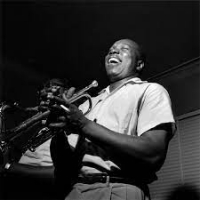
Thaddeus Joseph Jones was an American jazz trumpeter, composer, and bandleader who has been called "one of the all-time greatest jazz trumpet soloists".
Avishai Cohen

Avishai Cohen is an Israeli jazz double bassist, composer, singer, and arranger.
Noriyasu Agematsu

Noriyasu Agematsu (上松 範康, Agematsu Noriyasu, born March 1, 1978 in Nagano) is a Japanese composer and founding member of the musical group Elements Garden.He composed and arranged tracks on Nana Mizuki's singles Massive Wonders and Eternal Blaze, "Brave Phoenix" on the single Super Generation and the track "Tears' Night" on the album Alive & Kicking, composed the track Shin'ai and the music for "UNCHAIN∞WORLD" on the single Silent Bible. He composed and arranged the music for the track "Heart-shaped chant" on the single Secret Ambition and the track Justice to Believe. He composed the music for the track Mugen and the tracks "Trickster" and "DISCOTHEQUE" from the single Trickster. Along with his fellow Elements Garden members, he is the composer and arranger for the BanG Dream! franchise, including overseeing music production for its anime.
Wagner

Wilhelm Richard Wagner (22 May 1813, Leipzig, Germany - 13 February 1883, Venice, Italy) was a German composer, conductor, theatre director and essayist, primarily known for his operas (or "music dramas", as they were later called). Unlike most other great opera composers, Wagner wrote both the scenario and libretto for his works.
Wagner's compositions, particularly those of his later period, are notable for contrapuntal texture, rich chromaticism, harmonies and orchestration, and elaborate use of leitmotifs: musical themes associated with particular characters, locales or plot elements. Wagner pioneered advances in musical language, such as extreme chromaticism and quickly shifting tonal centres, which greatly influenced the development of European classical music.
He transformed musical thought through his idea of Gesamtkunstwerk ("total artwork"), the synthesis of all the poetic, visual, musical and dramatic arts, epitomized by his monumental four-opera cycle Der Ring des Nibelungen (1876). To try to stage these works as he imagined them, Wagner built his own opera house.
Wagner's musical style is often considered the epitome of classical music's Romantic period, due to its unprecedented exploration of emotional expression. He introduced new ideas in harmony and musical form, including extreme chromaticism. In Tristan und Isolde, he explored the limits of the traditional tonal system that gave keys and chords their identity, pointing the way to atonality in the 20th century. Some music historians date the beginning of modern classical music to the first notes of Tristan, the so-called Tristan chord.
Wagner's compositions, particularly those of his later period, are notable for contrapuntal texture, rich chromaticism, harmonies and orchestration, and elaborate use of leitmotifs: musical themes associated with particular characters, locales or plot elements. Wagner pioneered advances in musical language, such as extreme chromaticism and quickly shifting tonal centres, which greatly influenced the development of European classical music.
He transformed musical thought through his idea of Gesamtkunstwerk ("total artwork"), the synthesis of all the poetic, visual, musical and dramatic arts, epitomized by his monumental four-opera cycle Der Ring des Nibelungen (1876). To try to stage these works as he imagined them, Wagner built his own opera house.
Wagner's musical style is often considered the epitome of classical music's Romantic period, due to its unprecedented exploration of emotional expression. He introduced new ideas in harmony and musical form, including extreme chromaticism. In Tristan und Isolde, he explored the limits of the traditional tonal system that gave keys and chords their identity, pointing the way to atonality in the 20th century. Some music historians date the beginning of modern classical music to the first notes of Tristan, the so-called Tristan chord.
 Sheet Music Network is a site for those who wants to access popular sheet music easily,
letting them download the sheet music for free for trial purposes.
It's completely free to download and try the listed sheet music, but you have to delete the files after 24 hours of trial.
Don't forget, if you like the piece of music you have just learned playing,
treat the artist with respect, and go buy the original sheet music.
Sheet Music Network is a site for those who wants to access popular sheet music easily,
letting them download the sheet music for free for trial purposes.
It's completely free to download and try the listed sheet music, but you have to delete the files after 24 hours of trial.
Don't forget, if you like the piece of music you have just learned playing,
treat the artist with respect, and go buy the original sheet music.
